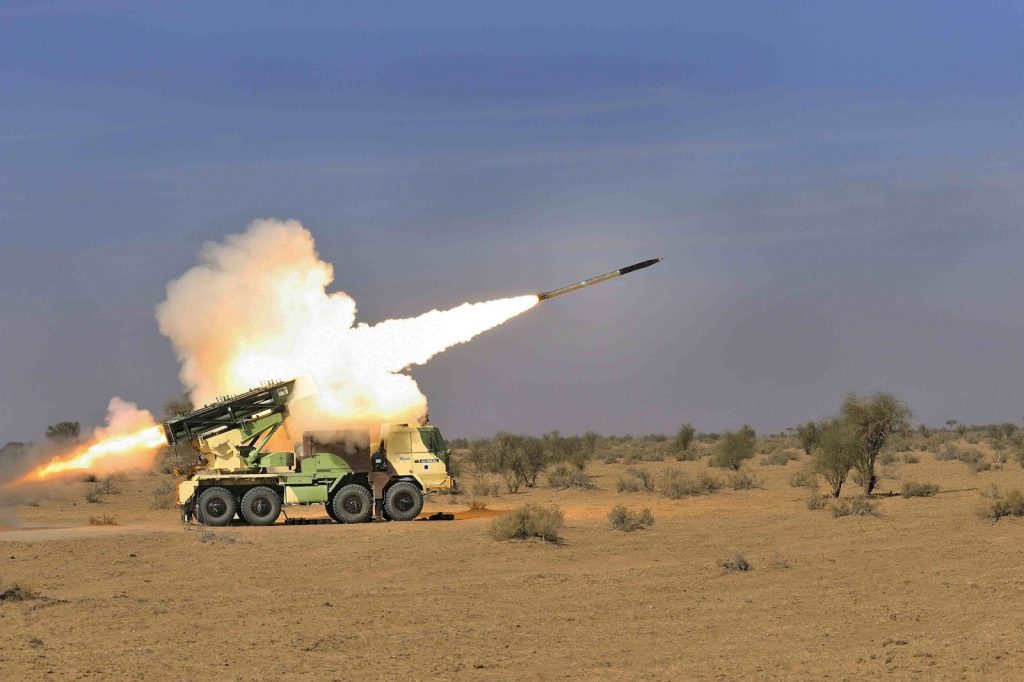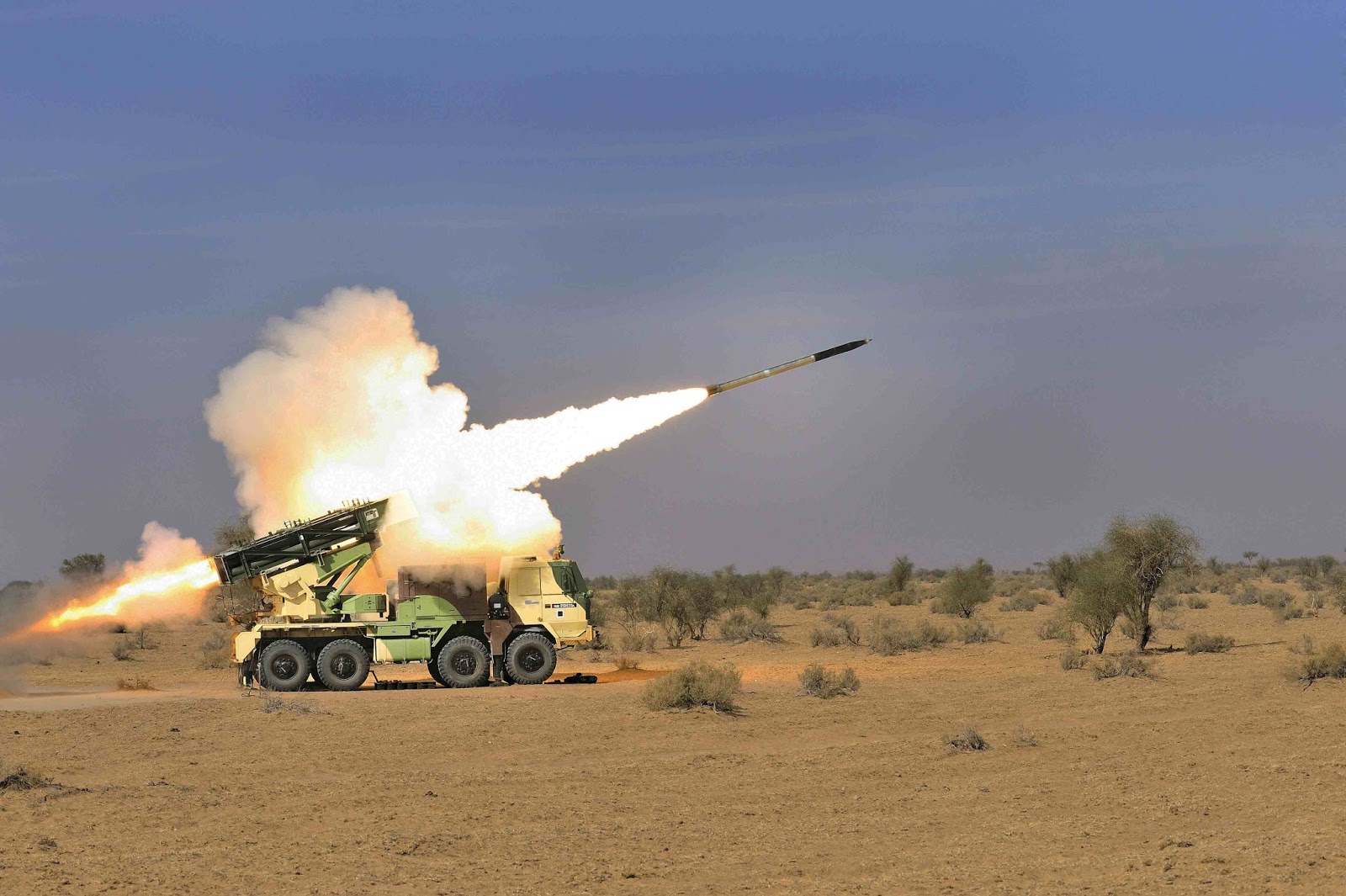In May, 2001, the Defence Industry sector, which was hitherto reserved for the public sector, was opened up to 100% for Indian private sector participation, with Foreign Direct Investment (FDI) up to 26% both subject to licensing. Further, Department for Promotion of Industry and Internal Trade, Ministry of Commerce & Industry vide Press Note No. 5 (2016 Series) has allowed FDI under automatic route upto 49% and above 49% through government route wherever it is likely to result in access to modern technology or for other reasons to be recorded. As per the data furnished by 79 companies operating in Defence and Aerospace sector, so far, FDI inflows of over Rs. 1834 crores have been reported under both government and automatic route till December, 2019.

By allowing higher FDI in the Defence sector, the global companies having high-end technologies can be encouraged to set up their manufacturing base in India in collaboration with Indian companies, thereby resulting in creation of employment opportunities, saving of foreign exchange and increasing indigenisation. FDI is one of the sources available for the industry to access some of the technologies required to indigenously design, develop and produce the equipments, weapon systems/platforms required for defence.
As per Press Note 1(2019 Series) notified by DPIIT, Defence Industrial licenses are issued for various defence items like tanks and other ground vehicles, defence aircraft, spacecraft and parts thereof, Unmanned Aerial Vehicles (UAVs), missiles designed for military purposes, warships of all kinds, high velocity kinetic energy weapon systems and related equipment, electronic equipments for military application, armoured or protective equipment, imaging or countermeasure equipment and other miscellaneous equipments. Steps taken by government to boost Indian Defence sector are as shown below:-
- Defence Procurement Procedure (DPP) has been revised in 2016 wherein specific provisions have been introduced for stimulating growth of the domestic defence industry.
- A new category of procurement ‘Buy {Indian-IDDM (Indigenously Designed, Developed and Manufactured)}’ has been introduced in DPP-2016 to promote indigenous design and development of defence equipment. It has been accorded top most priority for procurement of capital equipment. Besides this, preference has been accorded to ‘Buy (Indian)’, ‘Buy and Make (Indian)’ & ‘Make’ categories of capital acquisition over ‘Buy (Global)’ & ‘Buy &Make (Global)’ categories.
- FDI Policy has been revised and under the revised policy, FDI is allowed under automatic route upto 49% and beyond 49% through Government route wherever it is likely to result in access to modern technology or for other reasons to be recorded.
- An innovation ecosystem for Defence titled Innovations for Defence Excellence (iDEX) has been launched in April, 2018. iDEX is aimed at creation of an ecosystem to foster innovation and technology development in Defence and Aerospace by engaging Industries including MSMEs, Start-ups, Individual Innovators, R&D institutes and Academia and provide them grants/funding and other support to carry out R&D which has potential for future adoption for Indian defence and aerospace needs.
- The ‘Make’ Procedure has been simplified with provisions for funding of 90% of development cost by the Government to Indian industry and reserving Government funded ‘Make-I’ projects not exceeding development cost of Rs.10 crore & procurement cost Rs. 50 crore per year for MSMEs. The industry funded ‘Make-II’ Projects not exceeding development cost of Rs.3 crore & procurement cost of Rs. 50 crore per year have also been reserved for MSMEs.
- Separate procedure for ‘Make-II’ category has been notified under DPP to encourage indigenous development and manufacture of defence equipment. Number of industry friendly provisions such as relaxation of eligibility criterion, minimal documentation, provision for considering proposals suggested by industry/individual etc. have been introduced in this procedure.
- Government has notified the ‘Strategic Partnership (SP)’ Model which envisages establishment of long-term strategic partnerships with Indian entities through a transparent and competitive process, wherein they would tie up with global Original Equipment Manufacturers (OEMs) to seek technology transfers to set up domestic manufacturing infrastructure and supply chains.
- Government has notified a Policy for indigenisation of components and spares used in Defence Platforms in March, 2019 with the objective to create an industry ecosystem which is able to indigenize the imported components (including alloys & special materials) and sub-assemblies for defence equipment and platform manufactured in India.
- Government has decided to establish two defence industrial corridors to serve as an engine of economic development and growth of defence industrial base in the country. They span across Chennai, Hosur, Coimbatore, Salem and Tiruchirappalli in Tamil Nadu and spanning across Aligarh, Agra, Jhansi, Kanpur, Chitrakoot and Lucknow in Uttar Pradesh (UP).
- A Policy on ‘Utilisation of Third Party Inspection Services’ has been notified in May, 2018 for effective administration of inspection Services with involvement of third parties and promote Ease of Doing Business for MSMEs and private sector.
- Offset guidelines have been made flexible by allowing change of Indian Offset Partners (IOPs) and offset components, even in signed contracts. Foreign Original Equipment Manufacturers (OEMs) are now allowed to provide the details of IOPs and products after signing of contracts. In order to bring more transparency and efficiency into the Offset discharge process, “Offset portal” has been created in May, 2019.
- The Ministry has instituted a new framework titled ‘Mission Raksha Gyan Shakti’ in November, 2018 which aims to provide boost to the Intellectual Property Rights (IPR) culture in indigenous defence industry.
- Defence Investor Cell has been created in February, 2018 in the Ministry to provide all necessary information including addressing queries related to investment opportunities, procedures and regulatory requirements for investment in the sector.
- Defence Products list requiring Industrial Licences has been rationalised and manufacture of most of parts or components does not require Industrial License. The initial validity of the Industrial License granted under the IDR Act has been increased from 03 years to 15 years with a provision to further extend it by 03 years on a case-to-case basis.


















